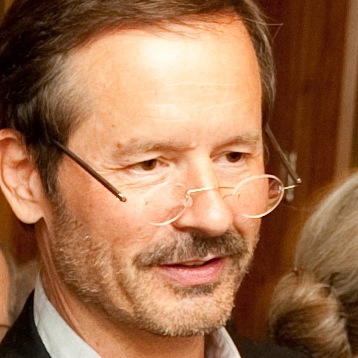More Awards for Vallee Scientists
Several more members of the Vallee Foundation community are being recognized for their outstanding work this month:
Lewis C Cantley (VVP 2006) (Weil Cornell Medical Center) has won the 2015 Canada Gairdner International Award from the Gairdn er Foundation for his groundbreaking discovery of a family of enzymes that are fundamental to understanding cancer. Dr Cantley is being recognized for his groundbreaking discovery of an enzyme called phosphoinositide 3-kinase (PI3K) and the signaling pathway that it controls. He found that human cancers frequently occur due to activation of PI3K, a breakthrough that has led to the development of drugs that target that signaling pathway. Read more... In recognition of his seminal contributions to the field of growth factor and oncogene signaling, the American Association for Cancer Research (AACR) will also honor Dr Cantley with the ninth annual Princess Takamatsu Memorial Lectureship at the AACR Annual Meeting 2015, to be held in Philadelphia, April 18-22. Read more...
er Foundation for his groundbreaking discovery of a family of enzymes that are fundamental to understanding cancer. Dr Cantley is being recognized for his groundbreaking discovery of an enzyme called phosphoinositide 3-kinase (PI3K) and the signaling pathway that it controls. He found that human cancers frequently occur due to activation of PI3K, a breakthrough that has led to the development of drugs that target that signaling pathway. Read more... In recognition of his seminal contributions to the field of growth factor and oncogene signaling, the American Association for Cancer Research (AACR) will also honor Dr Cantley with the ninth annual Princess Takamatsu Memorial Lectureship at the AACR Annual Meeting 2015, to be held in Philadelphia, April 18-22. Read more...
Bonnie Bassler (VVP 2014) (Princeton University, HHMI) is giving one of five Plenary Lectures at the American Society for Biochem istry and Molectural Biology (ASBMB) annual meeting in Boston on Sunday, March 29 at 8.00 am: Manipulating Quorum Sensing to Control Bacterial Pathogenicity. The research in her laboratory focuses on the molecular mechanisms that bacteria use for intercellular communication. Her goal is to understand how bacteria detect multiple environmental cues, and how the integration and processing of this information results in the precise regulation of gene expression. Read more...
istry and Molectural Biology (ASBMB) annual meeting in Boston on Sunday, March 29 at 8.00 am: Manipulating Quorum Sensing to Control Bacterial Pathogenicity. The research in her laboratory focuses on the molecular mechanisms that bacteria use for intercellular communication. Her goal is to understand how bacteria detect multiple environmental cues, and how the integration and processing of this information results in the precise regulation of gene expression. Read more...
Feng Zhang (YIA 2013) (Broad Institute, MIT) is being honored for his groundbreaking research using CRISPR-Cas9 with the 2015 A merican Association of Anatomists (AAA) C. J. Herrick Award in Neuroanatomy. On March 30th 2015, he will lead a lecture - Development and Applications of CRISPR-Cas9 for Genome Manipulations - at the AAA annual meeting at Experimental Biology 2015. The newest gene editing tool, CRISPR-Cas9 has led to new research possibilities in cell biology and neuroscience, including the ability to make transgenic animal models more quickly: transgenic mouse models, for instance, are created within three weeks versus six months. This means the study of gene mutations and potetential therapies will happen much more rapidly. Read more...
merican Association of Anatomists (AAA) C. J. Herrick Award in Neuroanatomy. On March 30th 2015, he will lead a lecture - Development and Applications of CRISPR-Cas9 for Genome Manipulations - at the AAA annual meeting at Experimental Biology 2015. The newest gene editing tool, CRISPR-Cas9 has led to new research possibilities in cell biology and neuroscience, including the ability to make transgenic animal models more quickly: transgenic mouse models, for instance, are created within three weeks versus six months. This means the study of gene mutations and potetential therapies will happen much more rapidly. Read more...
Other presenters at the Experimental Biology meeting include Ivan Dikic (VVP 2014) (Goethe University Medical School) and Philip Sharp (VVP 2013) (MIT).